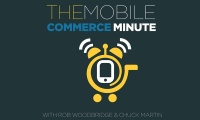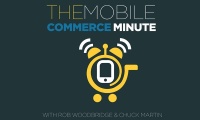
Why you should be where people love or where people hate - with Density founder Andrew Farah
05/20/15 • -1 min
There is a word that keeps cropping up when it comes to mobile anything - density. It is such a great word unless there isn't any. There are 3 axis for mobile these days: Context, location and density. Context is easy to start with: Is it morning, noon or night? Is it raining, sunny or snowing? Location is getting easier (and VERY slowly getting more accurate): Standing in a stadium, restaurant or train station? New York, New Jersey or Philadelphia? Density is a little more challenging. It looks for the answer of how many people are nearby or in a shop or are using an app in a specific region. The problem is that to make key mobile marketing decisions you need accuracy on all three. Hence, the three axis of mobile.
Today's guest is Andrew Farah, founder of the aptly-named Density. They install in/out counters in the doors of small and medium-sized businesses to do one thing: Count people entering and leaving the business. Seems simple enough but the challenges and the impact of what they are doing are many and wide-ranging.
Full show notes can be found here.
There is a word that keeps cropping up when it comes to mobile anything - density. It is such a great word unless there isn't any. There are 3 axis for mobile these days: Context, location and density. Context is easy to start with: Is it morning, noon or night? Is it raining, sunny or snowing? Location is getting easier (and VERY slowly getting more accurate): Standing in a stadium, restaurant or train station? New York, New Jersey or Philadelphia? Density is a little more challenging. It looks for the answer of how many people are nearby or in a shop or are using an app in a specific region. The problem is that to make key mobile marketing decisions you need accuracy on all three. Hence, the three axis of mobile.
Today's guest is Andrew Farah, founder of the aptly-named Density. They install in/out counters in the doors of small and medium-sized businesses to do one thing: Count people entering and leaving the business. Seems simple enough but the challenges and the impact of what they are doing are many and wide-ranging.
Full show notes can be found here.
Previous Episode

Mobile now influences $1 trillion in retail sales
There's a number for you. Mobile now influences $1 trillion of in-store sales. This is according to the most recent survey results from Deloitte Digital. Navigating the New Digital Divide highlights the growing importance of tracking the entire mobile shopping journey and not just the transaction as many other studies do. Mobile influences much more than payments and this proves that in spades. Chuck highlights the results in this episode.
Next Episode

Why context is a currency you can't ignore
This isn't new. The idea that time & location married with supply & demand brings untold opportunity has been around since long before mobile, the Internet, computers and electricity. What is different today is the fact all 4 of those things are at our disposal all the time and with it comes the ability to provide on demand relevancy. How does this work? Chuck explains it all in this episode. The key takeaways are that it does work and it does drive higher revenue. Period.
If you like this episode you’ll love
Episode Comments
Generate a badge
Get a badge for your website that links back to this episode
<a href="https://goodpods.com/podcasts/untethertv-mobile-strategy-and-tactics-video-pervasive-computing-inter-125112/why-you-should-be-where-people-love-or-where-people-hate-with-density-6277555"> <img src="https://storage.googleapis.com/goodpods-images-bucket/badges/generic-badge-1.svg" alt="listen to why you should be where people love or where people hate - with density founder andrew farah on goodpods" style="width: 225px" /> </a>
Copy







